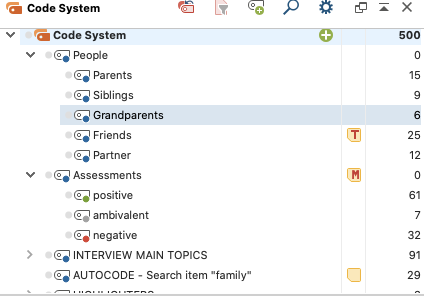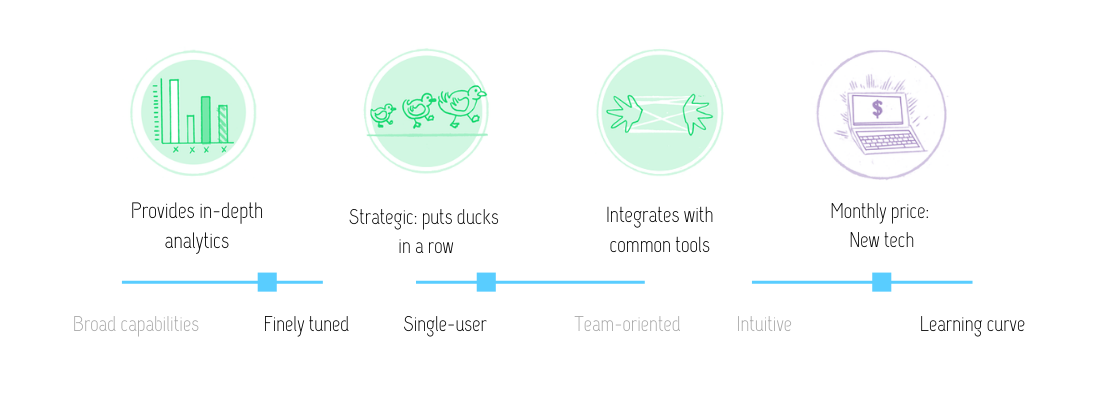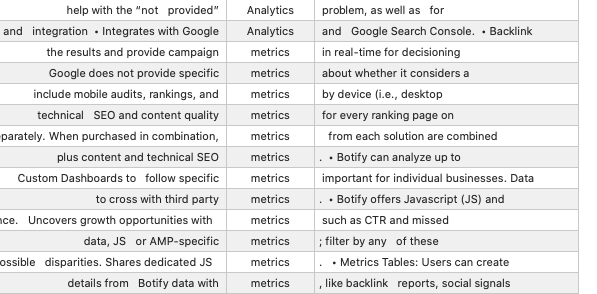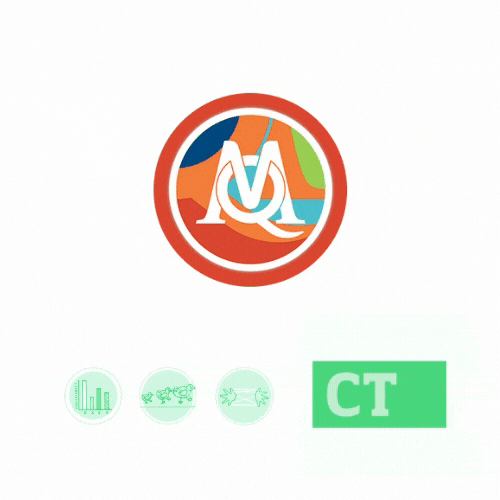This post originally appeared in the January 16, 2020 with the email subject line "The only web writing technique you really need" and an essay about The only SEO/UX/web writing tip you'll need in 2020.
This tool’s for the researchers, the interviewers, the collectors, the ethnographers and the meta-analyzers. Do you want to turn your large qualitative content dataset and want to transform it into quantitative data? MaxQDA’s got your number.
MaxQDA lets researchers apply custom metadata and codes to large content datasets, such as interview transcripts, PDFs, tables, Tweets, web data, structured data, piles of words that you have no hope of sorting without a computer. It’s desktop-only software — nopers, no cloud anywhere — so you know it’s for very serious researchers. (Also, wow, I forget about the quickness of desktop-only software. If I were dealing this much data I would be into this kind of speed.)

With MaxQDA, users can quickly append metadata and margin notes to large amounts of text. Define your own code systems, add them to text, then export that metadata to statistical analysis tools like SaS. Append “memos” or comments to content as notes, rather than as the comment conversations that are super helpful in track changes/Google Docs, but not so much for researchers.
MaxQDA’s sample dataset from their free 14-day trial is quite robust and displays a strong use case for what users can manually code or find and replace.I would have loved a tool like this back when I was manually sifting through blog posts and interview transcripts for my master’s thesis. (Ten years ago we had to apply our metadata by hand with pencils on print outs of blog posts. I hand-wrote notes on print outs of blog posts and then never referenced half of them again! Think of the better data I would have gotten if I’d had more flexible methods of organizing and assessing taxonomies! Think of all the time I wasted writing on paper when I could have been… probably at a bar, because I was 25 and kindof a late bloomer. Anywho our automated present is much slicker.)
The functionality reminded me of Adobe Premiere (the video editing tool) but for text datasets. Assess many types of content, mark ’em up and combined into one program that can organize them into some sort of code/narrative story applied to disparate formats. You can share the markup files with other research teammates if needed.
MaxQDA at a glance

I tested MaxQDA by analyzing my folder of “PDFs to read,” containing all the marketing lead gen ebooks I downloaded but never bothered to open.* The program scanned and imported all the contents in about 20 seconds (desktop software! what a concept!).
I decided to check out the context of how these whitepapers used “analytics” and “metrics,” with the five words before and after throughout with the Keyword-in-Context feature (one of the add-ons available in MaxQDA Plus and MaxQDA Analytics. The tool spit out a nice jargon analysis!

Other features include identifying word frequencies, statistical analysis on applied metadata, side-by-side display of marked-up content. Conduct an automated similarity analysis. Create your code systems. Export your code system. Complete some multivariate analysis on your code system. And of course you can make a fuckin’ word cloud. It’s a metadata nerd’s dream.
MaxQDA can intake many data formats, including SurveyMonkey data. It integrates with common academic tools, like Mandeley and Endnote.
It’s not the cheapest software in the world, so I’d recommend MaxQDA for the following types of content projects:
- Academic or book-length research that requires a user to understand large amounts of content
- UX, market research or ethnographic research with more than 50 transcripts
- Anyone who wants to conduct some meta-analysis of large amounts of web, Tweet or YouTube content.
- Understanding the content of YouTube comments, Twitter feeds, or other troll and bot cesspools
- Cleaning up a content archive or database
- Applying a new taxonomy or content hierarchy to 200+ documents or pieces of content
So yeah: this tool is for projects with lots of content or lots of metadata. It’s for organizing big content. But it might be perfect for your next ambitious project. It’s the new year, after all.
*Put your articles on the web if you want the digitally savvy to read them. Let’s get rid of PDFs this decade, please.
Hand-picked related content
- How do Americans research topics like Facebook and Google censorship? (paid members only)
- Planning to build trust through content in 2021 (paid members only)
- SparkToro review

